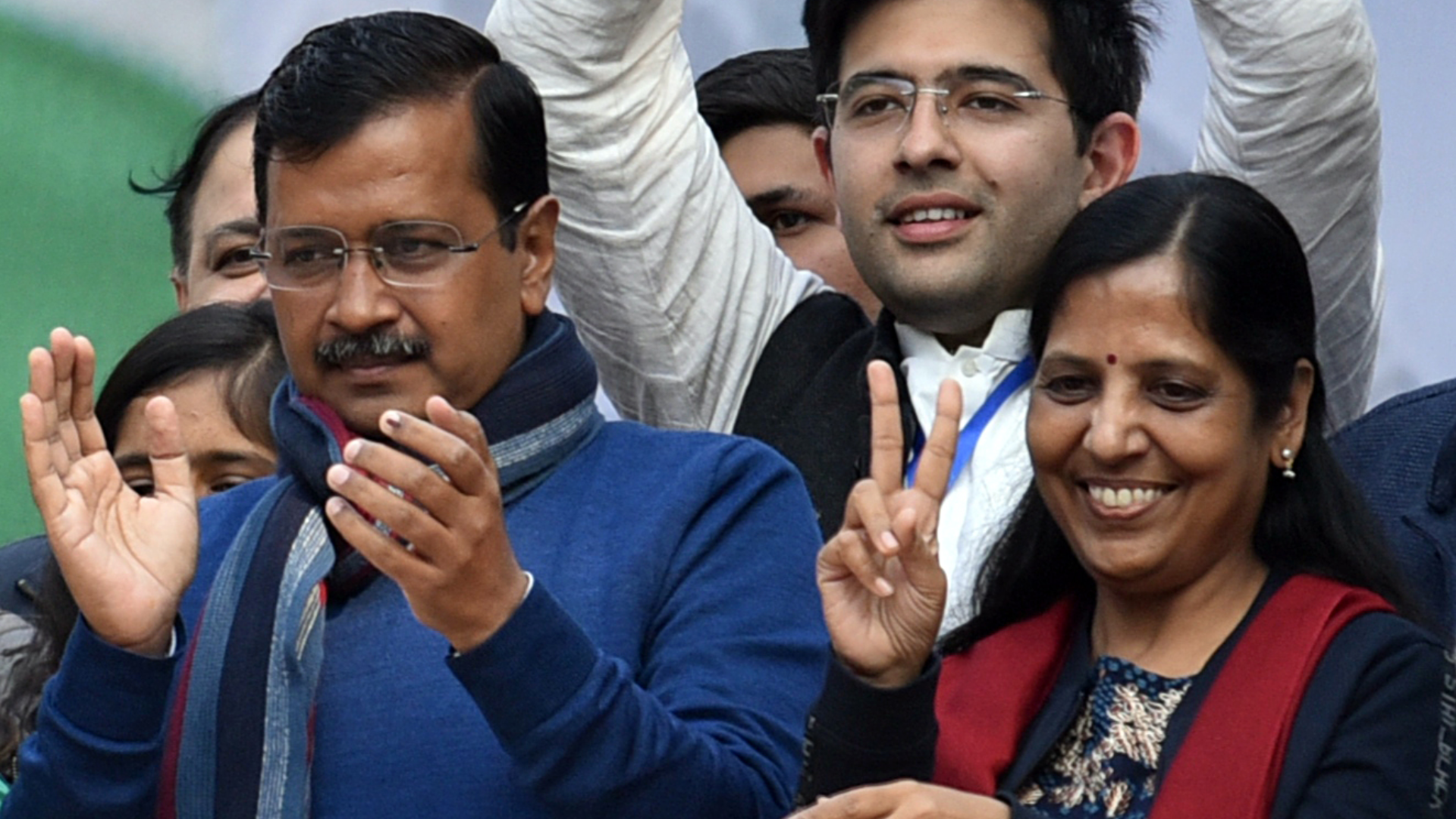Arvind Kejriwal, the Chief Minister of Delhi and founder of the Aam Aadmi Party (AAP), found himself in the custody of the Enforcement Directorate (ED) after being arrested on allegations of corruption related to the issuance of liquor licenses. This development occurred just a decade after Kejriwal established the AAP on an anti-corruption platform, reflecting a significant shift in his political trajectory.
Kejriwal’s arrest prompted a swift response from his wife, Sunita Kejriwal, who denounced the action as a betrayal of the people of Delhi. She emphasized her husband’s dedication to serving the country and his unwavering commitment to the public. Kejriwal’s detention by the ED underscores the intensifying legal challenges faced by the AAP leader, whose party has dismissed the allegations as an attempt to tarnish his image.
आपके 3 बार चुने हुए मुख्यमंत्री को मोदीजी ने सत्ता के अहंकार में गिरफ़्तार करवाया।सबको crush करने में लगे हैं। यह दिल्ली के लोगो के साथ धोखा है।आपके मुख्यमंत्री हमेशा आपके साथ खड़े रहें हैं।अंदर रहें या बाहर, उनका जीवन देश को समर्पित है।जनता जनार्दन है सब जानती है।जय हिन्द?
— Sunita Kejriwal (@KejriwalSunita) March 22, 2024
Advertisement · Scroll to continue
The Enforcement Directorate’s move came shortly after the Delhi High Court declined to grant Kejriwal protection from coercive action in a case related to money laundering associated with the excise policy. Kejriwal’s defiance of nine summonses from the central agency preceded his arrest, highlighting the gravity of the charges against him.
Despite the legal turmoil, Kejriwal’s party maintains that he will not step down as Chief Minister and intends to continue serving, even from jail if necessary. This determination is echoed by Delhi Education Minister Atishi Marlena Singh, who reiterated the party’s stance on Kejriwal’s leadership.
In court, the Enforcement Directorate characterized Kejriwal as the “kingpin” of the alleged Delhi liquor policy scam, seeking a ten-day custody for further investigation. However, his legal counsel, senior lawyer Abhishek Manu Singhvi, argued against the necessity of his arrest, citing the unprecedented nature of a sitting chief minister being detained.
The case revolves around accusations of corruption and money laundering in the formulation and execution of Delhi’s excise policy for 2021-22, which was subsequently revoked. Kejriwal’s name has been prominently featured in charge sheets filed by the ED, alleging his involvement in crafting the policy to benefit certain individuals in exchange for kickbacks.
The arrest of Kejriwal coincides with the apprehension of BRS leader K Kavitha by the ED, who is alleged to have conspired with top AAP leaders, including Kejriwal and Manish Sisodia, in influencing the Delhi excise policy. These developments have drawn condemnation from opposition leaders, who perceive them as politically motivated.
In response to Kejriwal’s arrest, prominent social activist Anna Hazare expressed disappointment, attributing the situation to Kejriwal’s actions. Hazare, who had previously collaborated with Kejriwal during anti-corruption campaigns, lamented the perceived shift in Kejriwal’s priorities and cautioned against involvement in excise policy matters.
As Kejriwal’s legal battle unfolds, his arrest reverberates through the political landscape, sparking debates about accountability, governance, and the intersection of power and justice in India’s democratic framework.






















